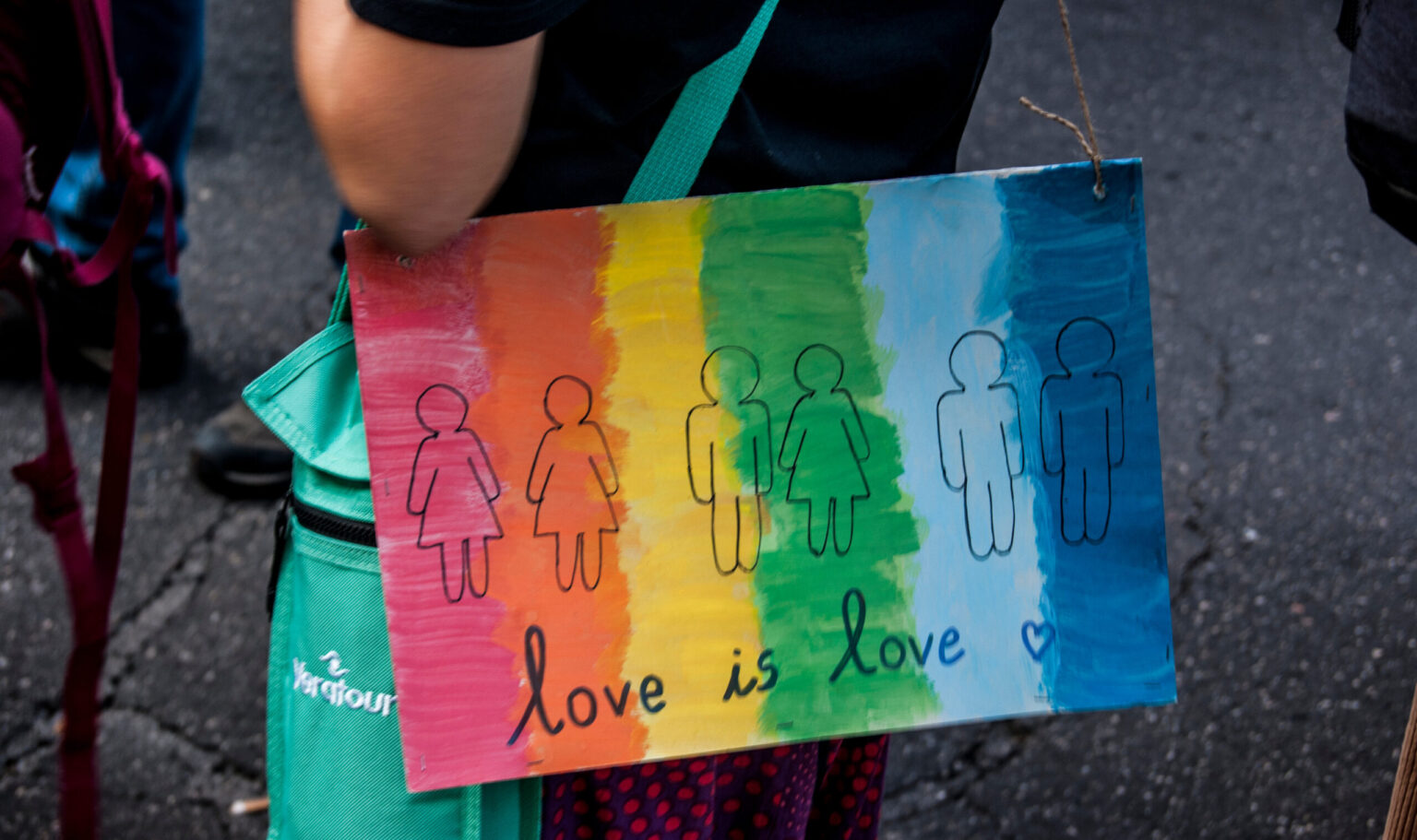As the culture war continues to rage in the political arena, conservatives must pay careful attention to the language they use. If we are using the language and the arguments of the left when discussing social issues, we are already on the defensive, already losing. Take Nikki Haley’s abortion comments in last week’s presidential debate. To be fair to Haley, her realism on a proposed federal abortion ban is legitimate: It is easy for federal candidates to use this issue to pander to pro-life voters (as Republicans have been doing for decades), knowing full well that there will never be 60 votes in the Senate to pass it.
But Haley’s language about the abortion issue is troubling: “Let’s treat this like the respectful issue that it is and humanize the situation and stop demonizing the situation.” Respectful issue? Stop demonizing the situation? If we adopt the logic of the left, then Haley is right: This is merely a sensitive matter about a woman’s personal decision concerning her own body. If that is true, we should indeed tone it down, stop “demonizing the situation,” and treat this like any other matter of healthcare policy. But if the child in the womb is indeed fully human, deserving of dignity, respect, and the rights of a citizen, how can we merely treat this like any other policy argument? Should we really stop demonizing the situation when we have a political regime that allows (even encourages) the killing of innocent unborn babies? When we adopt the language and arguments of the other side, we have already accepted their central premises and we are already losing the debate.
On abortion and many other social issues, the left has captured the language that shapes the current cultural narrative. And they have done a very good job. Giving puberty blockers to minors and removing their healthy sex organs is “gender-affirming care.“ Supporting the notion that a woman ought to be able to kill the child in her womb is merely support for a “woman’s right to choose.” Forcing people not only to accept but to celebrate all kinds of sexual orientation and gender identity novelties is merely “nondiscrimination.” Gender-affirming care. Right to choose. Nondiscrimination. Love is love. The left is winning the language war.
There are times where the left’s euphemistic language has become so institutionalized that one can’t really talk about something without using the unfortunate term. Most states have “nondiscrimination laws,” preventing disparate treatment on the basis of race, sex, etc. When those laws include the categories of sexual orientation and gender identity, the effect is not merely the prevention of discrimination, but an attempt to force people in the public square to think, speak, and act according to the new orthodoxy. As we saw this past June, even when such laws are struck down because they are in fact forcing speech rather than preventing discrimination, conservatives are often stuck calling these laws “nondiscrimination laws.” It doesn’t play well to oppose “nondiscrimination,” but that is what the laws are called and it is very difficult to reframe the language without losing a sense of what is being talked about.
Conservatives need to carefully avoid speaking in the terms of the woke left. As soon as one adopts language that was created to be hostile to traditional values (or biology, or common sense, as the case may be), he puts himself in a very bad rhetorical situation. It makes sense to fight against an attempt to expand marriage beyond its traditional and true meaning: the permanent union of one man and one woman, meant to be open to the possibility of new life. Such unions perpetuate the species and create the ideal environment for children to grow and be formed. But when a conservative “opposes same-sex marriage” rather than supports natural, traditional marriage…well, that doesn’t sound so good.
This thoughtful use of language is especially important as American culture continues its descent into the insanity of the transgender movement. The left has framed the literal mutilation of healthy children’s bodies as “gender-affirming care,” called biological women “birthing persons,” and insisted that men may be “she/her” and women “he/him” or “ze/zir” or “they/them” – which I, reactionary that I am, still maintain is plural and therefore inappropriately applied to one person.
Nuance in language matters here. For example, the Virginia state government should be applauded for fighting the transgender crusade in public schools, pushing back against the use of bathrooms and participation in sports based on “gender identity.” But the Virginia policy, as covered by Fox News, insists that these issues be decided not based on “gender identity” but on the student’s “sex assigned at birth.” The level of insane, imprecise, and newly invented language is mind-boggling. “Gender identity” is a made up, meaningless term. First of all, sex is a biological, natural, and spiritual reality. Gender is a distinction for nouns in romance languages, not for humans. Even accepting the already confused notion that people have a “gender,” the concept that this category is fluid and changes with a person’s claim to “identify” as something or other makes the category completely meaningless.
Of course, it is good not to allow the category of “gender identity” to control sensitive issues like what bathroom or locker room a student can use. But “sex assigned at birth” is yet another use of warped language on this issue. The University of Washington Medical School, which has its own complete LGBTQ+ Inclusion Glossary, defines “sex assigned at birth” as “The sex (male or female) assigned to an infant, most often based on the infant’s anatomical and other biological characteristics.”
That sounds OK, except it implies that sex is a trait that is “assigned.” Assigned by whom? The doctor, based on the genitalia he sees? Practically, that may be how the child’s sex ends up on the birth certificate. But the doctor’s observation and subsequent documentation is not what makes someone male or female. We are made specifically by God as male or female. The difference is in our very DNA, in our XX or XY chromosomes. “Sex assigned at birth” sounds like something assigned by a human’s best guess, rather than an intrinsic reality.
This might be a nitpicky argument. But language matters. In Religious Freedom After The Sexual Revolution, Helen Alvare highlights the growing instances in which Christians must “articulate … the reasons that they cannot obey the state.” In response to problematic laws regarding what Alvare collectively calls “sexual expression,” she regrets to find that “[t]oo often, Catholic institutions respond to demands to cooperate with problematic sexual expression with a brief recitation of the relevant Catholic ’rule’ or ’ban’….”
Explaining that “the Catholic rule forbids x” may be sufficient for Catholics who trust the authority of the Church. But this defensive and uncomfortable way of responding will not go far in pleading the case for traditional views of sexuality and the human person. As Alvare says, the Church “must do better than she is doing presently…Catholic institutions sorely need to change the way they speak about their refusals to cooperate with sexual expression laws.”
The goal is not only to better defend ourselves, but to aid a society that, plunging into chaos as it embraces ever more unnatural sexual novelty and vice, desperately needs these traditional values. Alvare notes that, in the modern scientific era, “there has never existed as much empirical evidence as we have right now that the Church’s prescriptions regarding sexual responsibility foster freedom, dignity, equality, and health and provide relief and comfort, especially to children and to vulnerable adults.” The world needs what Christians are selling. We need to make the best possible sales pitch, not merely defend our “rules” without positive explanation and vision.
Conservatives need to take the culture’s linguistic shift seriously. It needs to happen in our legal briefs, our op-eds, and our personal and professional conversations. There is a much better chance of gaining ground when we speak of protecting life rather than opposing a “woman’s right to choose.” We can cogently explain that complementarity of the sexes in a monogamous marriage honors the dignity of both sexes and creates the ideal conditions in which to raise healthy children, but we are not going to win on opposition to “same-sex marriage” or “the right to love who you love.” And we must oppose the performance of hormonal and surgical procedures on healthy bodies that have no problem requiring treatment, never speaking of “gender-affirming care.”
The left will continue to push the boundaries of language and invent new problems only the left can solve. As this occurs, it is true that some true believers will never be persuaded by precise language and rational argument. But there is a large “normie” middle, full of ordinary, apolitical people uncomfortable with the brave new sexual world of the left but unsure what to make of it all. We must present a positive vision of sexuality and the human person, avoiding the language of the left, if we are to win hearts and minds in this fight. Engage in the battle, but not on their terms. If we are using the left’s language, we are already losing.
Read the full article here














